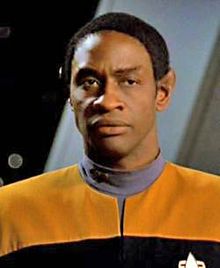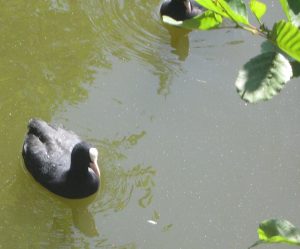Confidence and mistaking composure for ease.
Thoughts on building confidence like a Vulcan
Vulcan paradox

I have a small confession to make: I’m a bit of a Star Trek fan. It may seem an odd way to begin a post on confidence but it’s where I found my favourite quote. One episode included a Vulcan being found living undercover on a rebel ship. As Vulcan’s are supposedly unable to lie this was rather unusual, so when discovered by the Federation, who are the good guys, he was asked how he had fulfilled the role with such ease. His reply is now one of my favourite quotes: “don’t mistake composure for ease”.
This quote exposes one of the big issues for those of us seeking to gain more confidence. We mistake composure for ease all the time, watching others glide through life taking everything in their stride. We put them on pedestals, out of reach and class them as unapproachable. After all, how could they understand how we feel and how could we admit to our lack of confidence without losing the little respect for us they have.

In reality, many aren’t gliding at all. Many are simply more like ducks, paddling like fury under the water, battling against their own demons, while showing only their composure above it. Some will be looking to us with exactly the same thoughts and fears, thinking us as solid as a rock.
So how do those who turn it around do so ?
Confidence through sport
Some advocate sport as a way to gain confidence. This seems to work for many of us, particularly if we find our niche. Sport does give high visibility to our development, peer group support for that success, and the idea that our strengths matter to the team. My experience, however, was quite the opposite; sport at school left me in no doubt that I was not only a failure in that area but that trying and failing was something to be ridiculed and lambasted for. Team support felt more like authorised bullying, and speaking to others my age I know I’m not alone there. I believe that things improved these days.
Confidence built on competition
A lot has been said about confidence and competition for children. Some feel that competition creates too much pressure, others point to it as a way to reinforce the appreciation of hard work. Many believe that dealing with success or failure while competing gives us confidence in later life; I see it as a little less black and white. Some of us thrive on competition but confidence building requires that we win at least some of the time. As children, we rarely have many choices as to what we are competing in, often it’s something we would avoid in later life. Some of us only really care about self-competition anyway; whether we come first, fifth or eleventh doesn’t phase us, whether we did better than last time can be everything.
Personally, I feel that we need to experience competition to understand it but that we should be allowed to opt in or opt out of competing at an early age. In the end, competition, whether in sport, the maths class or a beauty pageant builds confidence for some and shatters it for the rest of us.
Confidence creating choice
Whether any of these things help confidence or not often boils down, to being able to make our own choices. To actually make a choice we need to be able to communicate it effectively; learning to do that can be the biggest confidence boost we ever get. Knowing we are able to make our choices understood gives us the confidence to express them. In learning to express ourselves we realise that effective communication requires listening on both sides. With real communication, it’s easier to negotiate the outcome we want.
Never too late to learn
This revelation did not come to me until relatively late in life and almost by accident. The growing family were distracted by online gaming, TV was getting stale, a local public speaking club’s website looked interesting so I made a nervous visit. I discovered and joined my local Toastmasters International club. Perhaps my life wouldn’t have been vastly different if I had joined sooner; I am sure that as a more confident communicator life would have been a lot more comfortable. I would have hidden less, spoken up more and created more choices for myself. I would have been a more confident person much sooner.
Ultimately communicating confidently gives us our composure and onlookers will inevitably mistake it for ease. Sometimes they will also be right.
